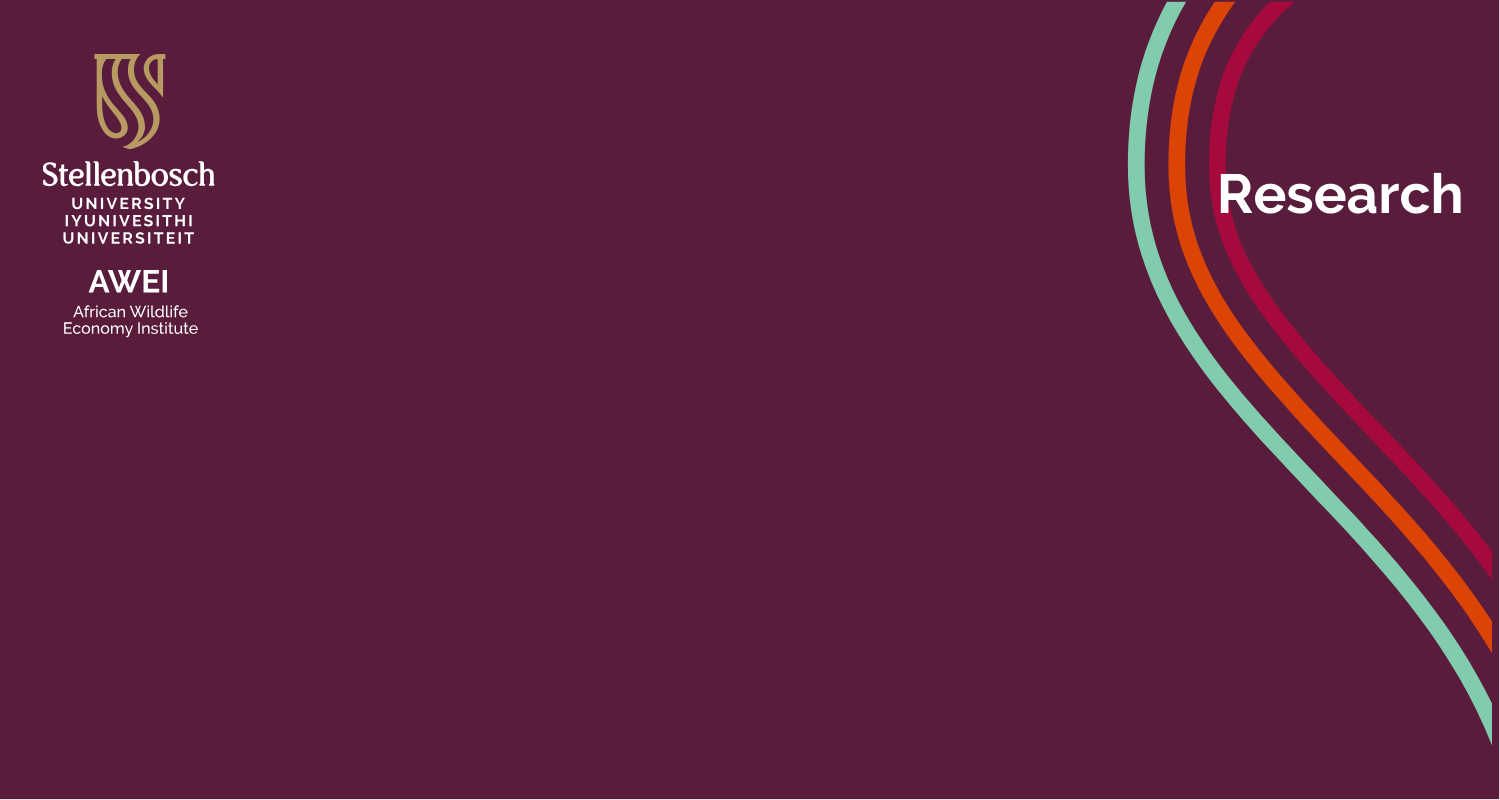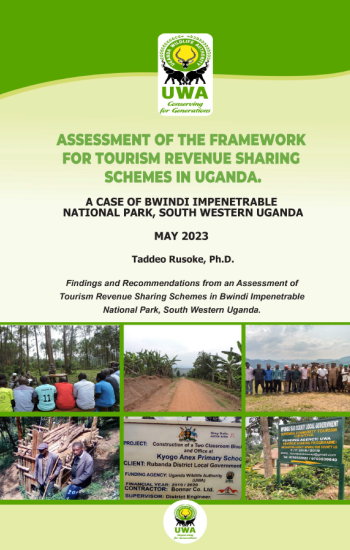

Assessment of the Framework for Tourism Revenue Sharing Schemes in Uganda.
A case of Bwindi Impenetrable National Park, South Western Uganda
This report presents findings on a study that assessed the framework for tourism revenue sharing schemes in Uganda: A case of Bwindi Impenetrable National Park (BINP), South Western Uganda. Adopting a cross-sectional design, the study a) ascertained communities’ perceptions of the benefits of tourism revenue sharing (TRS), b) measured the relationship between tourism revenue sharing and livelihoods, c) determined the effect of TRS sharing projects on socio-economic well-being and e) investigated challenges associated with processes of tourism revenue access, management and monitoring among 367 respondents from frontline communities in villages bordering BINP. The tourism revenue sharing schemes investigated were; the 20% gate collection fees paid by tourists and the US$10 gorilla levy fees shared in parishes bordering Kanungu, Rubanda, and Kisoro districts. Preliminary findings indicate that (72.4%) of the 367 respondents who were involved in tourism-sharing programs propose changes in the tourism revenue-sharing legal framework to ensure efficiency in the implementation, monitoring, and management of Tourism Revenue Sharing Projects around Bwindi Impenetrable National Park (r = .784, P˂0.05). There was a significant relationship between the construction of schools, and the socio-economic well-being of communities bordering BINP (β = .164, P<0.05). Fewer health centers were supported through TRSF, and this negatively affected expenditure in terms of income spent by communities bordering BINP on healthcare services (β = -.098, P<0.05). At the household level, involvement in TRSPs resulted in an improvement in household income by directly addressing household needs by 73.5% (r=0.735, P<0.05) and indirectly improving income by 89.5% (r=0.895P<0.05). The main challenge associated with TRS processes around BINP is delays in the disbursement of funds from the local government to implement and monitor TRSP at 52%. Communities around BINP suggested that future investments in TRSPs should focus on road construction (30%), and construction of more classroom blocks at the different schools within the frontline parishes (17.71%). Based on the findings, the following strategic recommendations are proposed: 1. Uganda Wildlife Authority should manage the Tourism Revenue Shared Funds (TRSF) rather than disbursing TRSF to the Local Government. This shall require an amendment of the legal framework governing tourism revenue-sharing schemes in Uganda. 2. District Procurement Committees should involve communities in procurement processes and decisions on the choice of projects to be supported under TRSF. This could require amended of the project procurement processes at the different levels. 3. All stakeholders should actively get involved in TRSF management and monitoring processes to avoid delays in the disbursement and implementation of agreed-upon projects between Local Governments and the Uganda Wildlife Authority.
Rusoke, Taddeo. (2023). Assessment of the Framework for Tourism Revenue Sharing Schemes in Uganda. A case of Bwindi Impenetrable National Park, South Western Uganda..
-

Dr Taddeo Rusoke
Research Associate
We support the free flow of information. Please share:
More content
-

What Foot and Mouth Disease-free means for South Africa’s game meat trade
Ms Lydia Daring Bhebe…Explore the latest developments in South African provinces achieving and maintaining Foot and Mouth Disease (FMD) free status…
Articles -

The world wildlife trade regulator is 50 – here’s what has worked and what needs to change
Daniel Challender…Most countries implement Cites, the Convention on International Trade in Endangered Species of Wild Fauna and Flora as…Articles -

Enabling Sustainable Wildlife Trade
Prof Francis VorhiesEnabling sustainable wildlife trade is a key policy measure for growing Africa's wildlife economy. In this respect, CITES…
Articles -

Has CITES become too complicated to be effective?
Prof Francis VorhiesGovernments agreed to the text of CITES in the 1970s, which is quite straightforward. However, the agreement’s implementation…
Articles -

From poachers to providers: Can Africa's wild meat market save wildlife?
Dr Wiseman NdlovuHave you ever considered how wild meat could be more than just a cultural staple but also a…
Articles -

As a fellow of the African Wildlife Economy Institute (AWEI), I am excited to attend the upcoming 3rd…
Articles -

A theory of change to improve conservation outcomes through CITES
Dr Michael 't Sas-Rolfes…Here we articulate the implied theory of change (ToC) underpinning the design and operation of CITES (Convention on...
2025Research -

Wild Meat Value Chain Integration Systems: Opportunities for Value Chain Formalisation and Scaling in Africa
Dr Wiseman Ndlovu…Establishing a legal, safe and sustainable wild meat sector promises to potentially reduce demand for illegally sourced meat...
2025Research -

AWEI's 2024 Wildlife Economy Dialogue Series
Ms Emily TaylorRediscover 2024: A year of insight and inspiration
In 2024, AWEI proudly hosted three ground-breaking dialogue series in…
Articles
Get updates by email
Through impactful research, stakeholder engagement, and professional development, AWEI is supporting the wildlife economy across Africa. Please subscribe for occasional updates on our work and forthcoming events.
Sign up for a quarterly dose of AWEI insights
In a complex and changing world, AWEI generates strategic ideas, conducts independent analysis on wildlife economies, and collaborates with global scholar-practitioners to provide training and expertise for biodiversity conservation, climate resilience, and inclusive economic opportunities in Africa.
